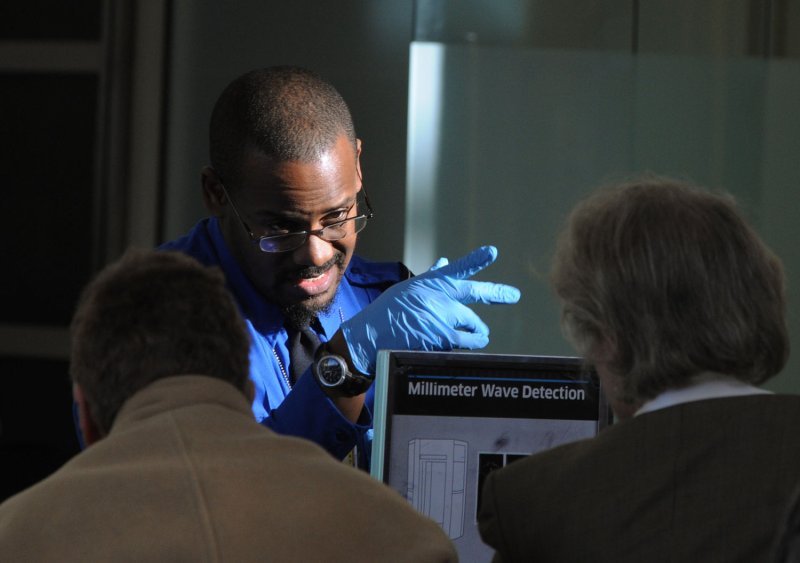A U.S. Transportation Security Administration (TSA) officer checks boarding passes and identification cards of passengers at Ronald Reagan National Airport, near Washington, in Arlington, Virginia on December 29, 2009. Air captains aboard U.S. flights now have discretion whether to enforce security procedures prohibiting passengers from moving around the cabin of commercial flights during the final hour of the flight. TSA has also stepped up screening procedures at airports following a thwarted terrorist attack attempt on Northwest Airlines flight 253 bound for Detroit on December 25. UPI/Alexis C. Glenn |
License Photo
WASHINGTON, Oct. 28 (UPI) -- The U.S. Transportation Security Administration says new rules effective Monday require fliers to provide photo identification listing their full legal names.
The Secure Flight Program also requires travelers to provide date of birth and gender, The Dallas Morning News reported.
Most passengers already provide the required information, but those who don't won't be able to fly, the report said.
"It's conceivable that you will not be able to fly if you show up on Nov. 1 and haven't done what's necessary," American Airlines spokesman Tim Smith said.
American Airlines has required the additional information since Sept. 15, Smith said. He said passengers should provide the information 72 hours before their planned trip.
"Most people are providing information," Smith said. "The numbers of those who have not done so are a very, very small percentage. But, it can add up to a fair amount of people at one time."
Andrew Weinstein, a spokesman for Interactive Travel Services Association, encouraged travelers to arrive at airports early in light of the new rules.
"There may be delays as the airlines work to process travelers who have not provided that data in advance of check in," Weinstein said.















